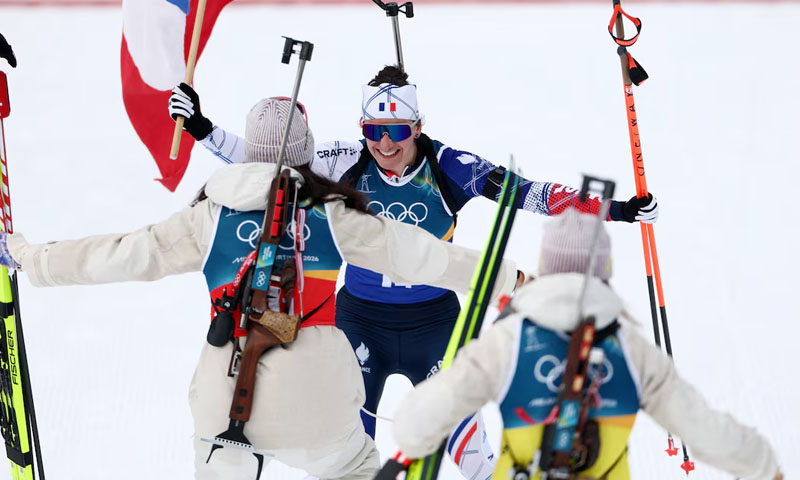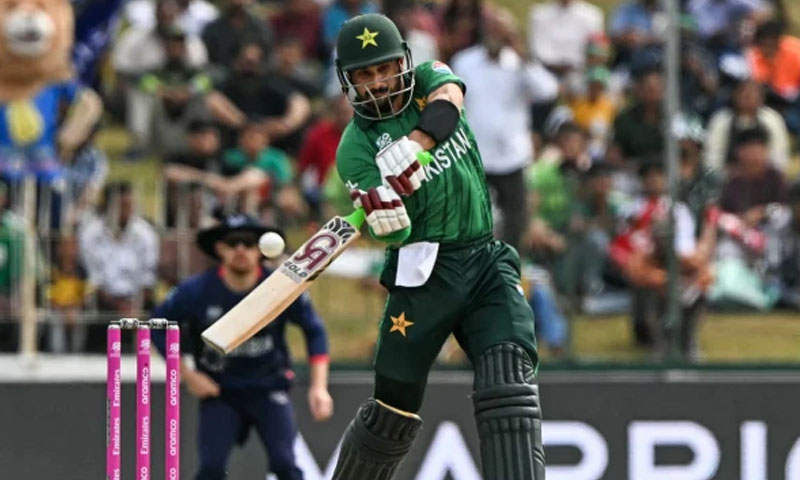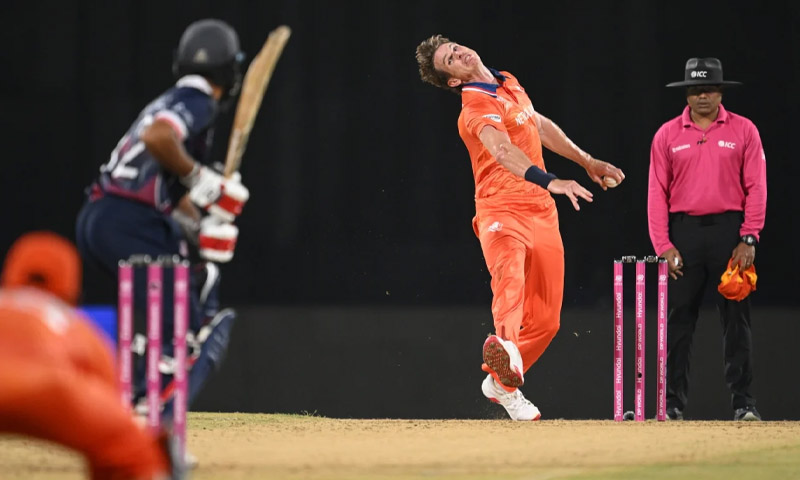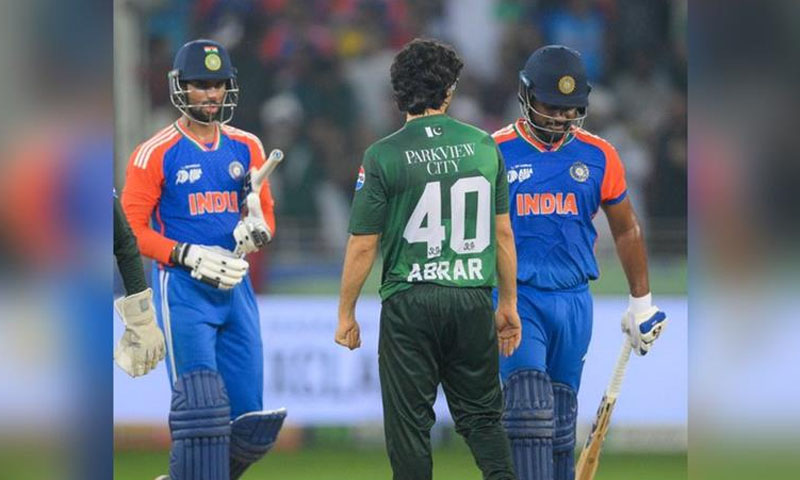- Web Desk
- 6 Hours ago
Layla Banaras: from Birmingham’s backyard to the girl in green
-

- Web Desk
- Sep 15, 2025
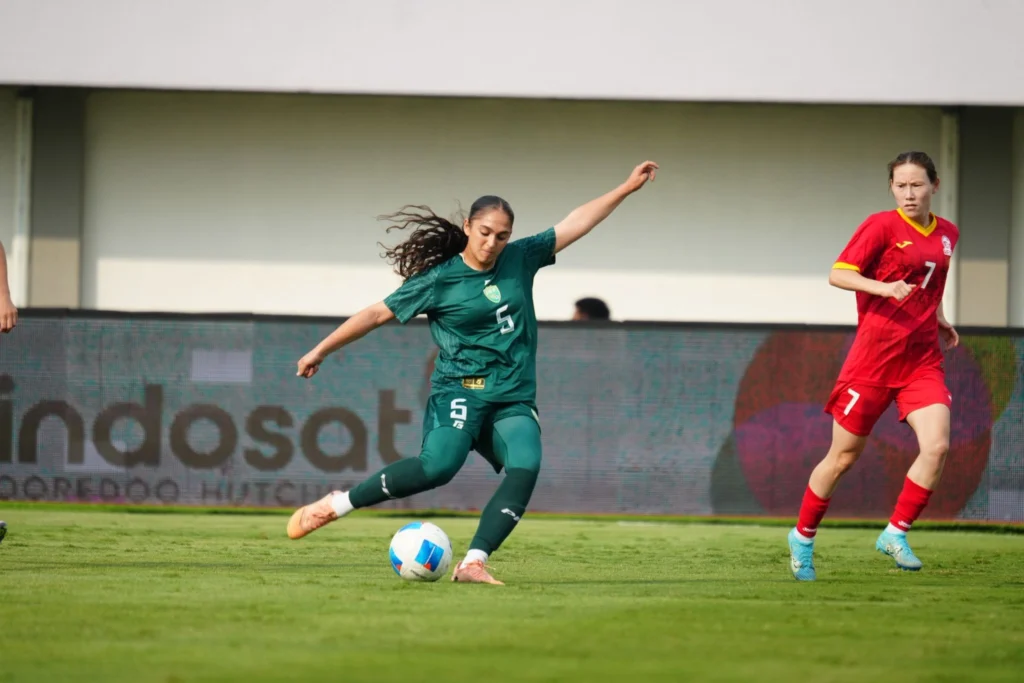
By Urooj Mansab Khan
Layla Banaras was 19 when she made her international debut for Pakistan. A few days later, clips of her assists began circulating online. And soon, the numbers piled up to over a million views. Suddenly, the teenager from Birmingham was not just a standout performer, but rather symbolised the potential for a program still in its early stages.
For Banaras, the moment was bigger than the metrics. “I was like, oh my God, I’m playing football for a living!” she recalls. “But seeing my dad in the crowd, that was what really got me. I couldn’t put it into words.”
That match, in the Asian Football Confederation (AFC) Women’s Asian Cup qualifiers, was the making of a star. Moments before kickoff, Layla had scanned the crowd and found her father. It was his first time seeing his daughter represent his home thousand of miles away. She does not remember much of the match itself, “just the nerves, the weight, and the noise.”. But it did not take long to settle. By full time, she had picked up two assists and walked off to a roar from the small but vocal section of Pakistan supporters.

Between two worlds, building her own game
It wasn’t just a debut. It was a hinge between two footballing systems – England’s hyper structured academy model, and Pakistan’s fractured, under resourced women’s program. And Banaras, who recently signed her first professional contract after 11 years in Birmingham City’s academy, now stands as a bridge between them.
By English standards, her rise has been steady rather than sensational. She was scouted at eight, moved through every age group, and tried her hand at multiple positions before finding a home in midfield. “I started as a fullback, but a coach said I’d suit midfield,” she says. “I tried it and loved it. I haven’t moved back since.”

Her positional shift coincided with a growth in confidence and impact. “You’re involved in everything there,” she says. “Controlling tempo, building attacks, defending when needed. It suits how I like to play.”
That maturity on the pitch is matched by her composure off it. Viral attention doesn’t seem to faze her. “I didn’t even realise my videos were going viral until someone told me,” she says, adding: “I let my football do the talking.”
Even after her debut had gone viral, what mattered most was not on screen. It was what she had stepped into: a national program still stitching itself back together.

Rebuilding a team through diaspora lifelines
But attention, however incidental, now follows Banaras, especially within Pakistani football circles where the women’s national team is slowly trying to rebuild itself after years of instability. From 2014 to 2022, Pakistan’s women’s side played no official matches, sidelined by a combination of FIFA suspensions and infighting within the Pakistan Football Federation (PFF). As a result, an entire generation of players lost development time, and the current team is still trying to catch up.

In that vacuum, players from the diaspora have become increasingly central to the national team setup. Banaras is not the first. Captain Maria Khan, striker Zahmena Malik, and others have also joined in recent years. Many, like Banaras, have come through structured systems abroad and now find themselves representing a team with no full time league and limited training windows. It’s a short term strategy born of long term neglect.
But the gaps are everywhere.
Banaras noticed the difference immediately. “Here [in England], you play every week. You train every day. It’s structured,” she says. “Over there, the local girls don’t have that. They only come in during international breaks.” Despite that, she was struck by the talent. “But you wouldn’t know who came through an academy system and who didn’t. Everyone gelled. Everyone played for the badge.”

The distinction between systems is real. But for Banaras, it’s not a binary of developed versus undeveloped. It’s a question of opportunity. “If they had regular games and more camps, that ability would only grow,” she says. Banaras is part of a growing wave of diaspora players choosing to represent Pakistan; bringing structure, experience, and a sense of what’s possible. The model is familiar: raise short term competitiveness, then use that visibility to grow the local game. But success depends on the second half of that plan actually materialising.
For now, Pakistan’s women’s team remains largely disconnected from domestic development. There is no professional league, and few high performance pathways for girls within the country. The PFF has made public commitments to improve the women’s game, but actual progress has been slow.
Banaras doesn’t pretend to have the solution. But she’s clear on where things need to go. “The girls in Pakistan need more access,” she says, “They need clubs. They need leagues. They need to play regularly.”
Playing for more than herself
What makes her perspective compelling is that she’s not speaking as an outsider. Her connection to Pakistan is familial, yes, but it’s also lived, through the emotional weight of putting on the national shirt.
“It felt different. It was more than just football,” she says. “You’re representing 250 million people. That’s not something you take lightly.”

In England, she’s one of many players trying to carve out a career in a saturated system. In Pakistan, she’s part of a national core, and a future leadership group, forming in real time. “We only had a short camp before the Asian qualifiers, but we still managed to perform,” she says. “The more time we get together, the more we’ll be able to show what we can do.”
Banaras is not the finished product, and she knows it. At 19, she’s still early in her professional journey. Looking forward, she is clear eyed about the challenges and hopeful about the future. With every step she takes, she carries the hopes of a generation waiting to break through. “The structure isn’t there yet, but the players are.”
While Layla continues to carve her name into Pakistan’s football history with assists and trailblazing performances, she also keeps her feet firmly on the ground, often sharing glimpses of her everyday life off the pitch. From training drills to her lighthearted “Hunt for Halal Meat” series on Instagram, she reminds her audience that beyond the rising star is also a teenager navigating ordinary joys and struggles. It’s this blend of excellence and relatability that makes her not just a player to watch, but a personality who carries her game, and her community, with her.
Banaras is not the finished product, and she knows it.
At 19, she’s still early in her professional journey. Looking forward, she is clear eyed about the challenges and hopeful about the future. With every step she takes, she carries the hopes of a generation waiting to break through. “The structure isn’t there yet, but the players are.”
All pictures have been provided by Layla Banaras herself.

